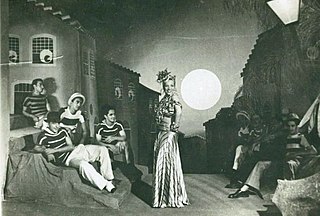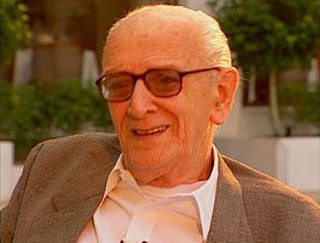
Samba is a name or prefix used for several rhythmic variants, such as samba urbano carioca, samba de roda, recognized as part of the Intangible Cultural Heritage of Humanity by UNESCO, amongst many other forms of samba, mostly originated in the Rio de Janeiro and Bahia states.

Maria do Carmo Miranda da Cunha, known professionally as Carmen Miranda, was a Portuguese-born Brazilian singer, dancer, and actress. Nicknamed "The Brazilian Bombshell", she was known for her signature fruit hat outfit that she wore in her American films. As a young woman, she designed hats in a boutique before making her first recordings with composer Josué de Barros in 1929. Miranda's 1930 recording of "Taí ", written by Joubert de Carvalho, catapulted her to stardom in Brazil as the foremost interpreter of samba.
"Aquarela do Brasil", written by Ary Barroso in 1939 and known in the English-speaking world simply as "Brazil", is one of the most famous Brazilian songs.
"Cidade maravilhosa" is a march that was written and composed by André Filho and arranged by Silva Sobreira for the Rio de Janeiro carnival in 1935. It has since become the anthem for the city of Rio de Janeiro. In the same year, Aurora Miranda recorded a sung version of the song that became extremely popular.

Marcelo Rubens Paiva is a Brazilian writer born in São Paulo, Brazil. He is the son of Rubens Paiva, who disappeared during Brazil's military dictatorship in 1971.
"I, Yi, Yi, Yi, Yi " is a 1941 song. It was written for the 1941 film That Night in Rio, and was popularized by Carmen Miranda. The lyrics were written by Mack Gordon and the music by Harry Warren.

Canibália is Daniela Mercury's ninth studio album, released on October 23, 2009, in Brazil by Sony Music. It was released on October 24 in the United States and on October 27 in the European Union. Mercury's first studio release in four years brings not only an eclectic sound, but also five different covers.

Mário da Silveira Meireles Reis, also known as Bacharel do Samba was a popular Brazilian samba singer, active between 1928 and 1971. He collaborated with artists such as Francisco Alves, Carmen Miranda, Aracy de Almeida and Noel Rosa and was particularly successful as a radio singer.
"Na Baixa do Sapateiro" is a famous Brazilian song, written by Ary Barroso. Its title comes from a street in Salvador, Bahia, where many cobblers once worked. It was originally released in 1938 as the B side to Salada Mista, which did not achieve the same level of success. This first recording was sung by Carmen Miranda with Orchestra Odeon. She never released the song on disc in the United States. The song was originally going to be featured in the Carmen Miranda film Banana da Terra (1939), but was replaced with "O Que É Que A Baiana Tem?", because of the high license fee demanded by Ary Barroso to use his song. However the song has been recorded many other times by a large number of artists. The song gained international fame when it was featured in the Disney film The Three Caballeros (1944).

Carmen Miranda: Bananas is My Business is a 1995 documentary filmed and directed by Helena Solberg. This documentary chronicles the life and career of Carmen Miranda, Hollywood's symbol of Latin American spirit in the 1940s. The documentary tells her life story in a series of stages, beginning with her roots and rise to stardom in her home country of Brazil, her transition and development as a performer in the United States, first on Broadway in New York City, then in the film industry after she signed with 20th Century Fox in Los Angeles, and her later years in life, before her death and her return to Brazil. Helena Solberg uses two different film styles, biography and directorial reverie, in which Solberg uses actor Erick Barretos to “resurrect Carmen Miranda in several fantasy sequences. Helena Solberg's attitudes shift throughout the documentary from awe-struck child to empathetic and forgiving Brazilian woman, which she uses to represent the contradictory subplots of Carmen Miranda's life. Alongside the fantasy like resurrection of Miranda, Solberg accompanies her documentary with multiple interviews with Carmen Miranda's friends and family, like her sister, her first boyfriend, the guitarist Laurindo Almeida, samba song-writer Synval Silva, Cesar Romero, and Alice Faye.
Gislaine Fernandes de Sousa Leme, best known as Júlia Paes, is a Brazilian model, singer and former adult actress.

Carmen Miranda Museum, located in the Parque Brigadeiro Eduardo Gomes, is a museum established in homage to singer and actress Carmen Miranda and open to the public since 1976. The museum was officially opened on the 21st anniversary of her death.

O que é que a baiana tem? is a song composed by Dorival Caymmi in 1939 and recorded by Carmen Miranda.
"Mamãe eu quero" is a 1937 Brazilian song composed by Vicente Paiva and Jararaca, and is one of the most famous Brazilian songs. The original recording was made by one of the composers, Jararaca, in 1937 and recorded on Odeon Records.

Banana da Terra is a 1939 Brazilian musical film directed by Ruy Costa and written by Braguinha and Mário Lago. The film stars Carmen Miranda, Dircinha Batista and Aloysio de Oliveira. It was Miranda's last film in Brazil, before she moved to Hollywood.

"No Tabuleiro da Baiana" is a samba written in 1936 by Ary Barroso and recorded by Carmen Miranda.
Rebola, Bola is a song written by Aloysio de Oliveira, Nestor Amaral and Brant Horta, and recorded by Carmen Miranda in 1941 for the film Week-End in Havana, in which Miranda co-starred.

Aloísio or Aloysio de Oliveira, also known as Louis Oliveira, was a Brazilian record producer, singer, actor and composer. A key figure in the internationalization of Brazilian popular music, he contributed to Carmen Miranda's career abroad with his own musical ensemble: Bando da Lua, which he founded in 1929 with Hélio Jordão Pereira, Afonso Osório, Stênio Osório, Armando Osório, Osvaldo Éboli, Ivo Astolfi, Diego Astolfi and some other cousins of the latter for a total of 12 people. With the death of Miranda in August 1955 the group disbanded. Back in Brazil, Aloísio directed the command of Odeon Records, then created his own record label: the Elenco, producing dozens of discs and launching important names of bossa nova as Tom Jobim.
Canibália was a concert tour by the Brazilian singer Daniela Mercury, beginning on August 7, on Citibank Hall, São Paulo. Eight days after, where she made another concert at Citibank Hall, she went to Rio de Janeiro and then took the tour to Portugal, where she performed in five cities, right after, back to the Latin American, European and North American. The tour counts with the participation of dancers, who danced the choreographies developed by Jorge Silva, recognized choreographer from Bahia. Gringo Cardia, the developer of the five covers of the album Canibália, was responsible for the elaboration of the scenario of the tour. On March 10, 2011, Mercury began her new tour Canibália: Ritmos do Brasil Tour to promote her new album of de same name recorded live in Copacabana Beach, in Rio de Janeiro.

Mário Lago OMC was a Brazilian lawyer, poet, broadcaster, composer and actor.











